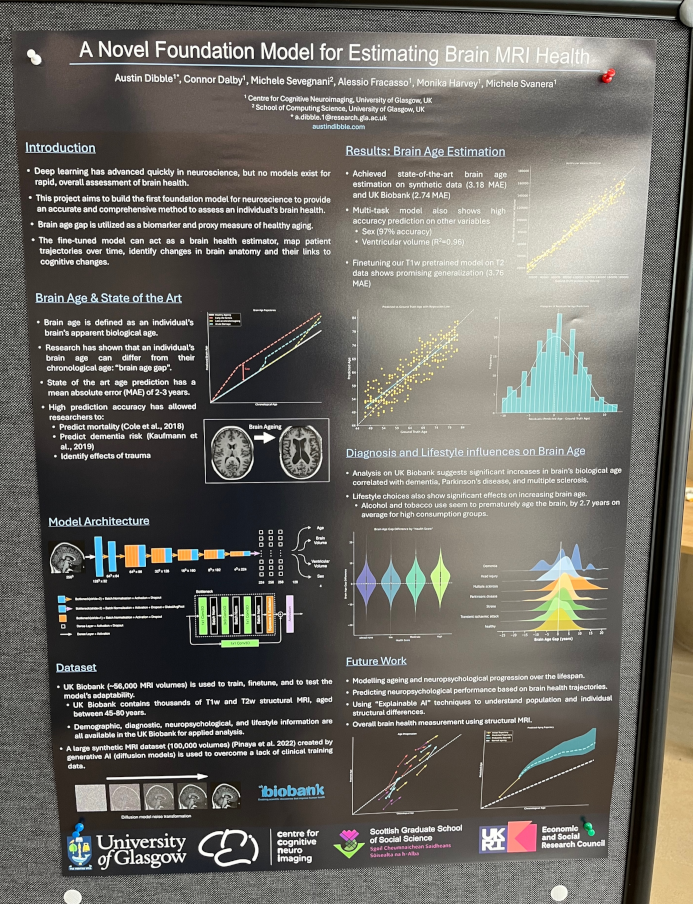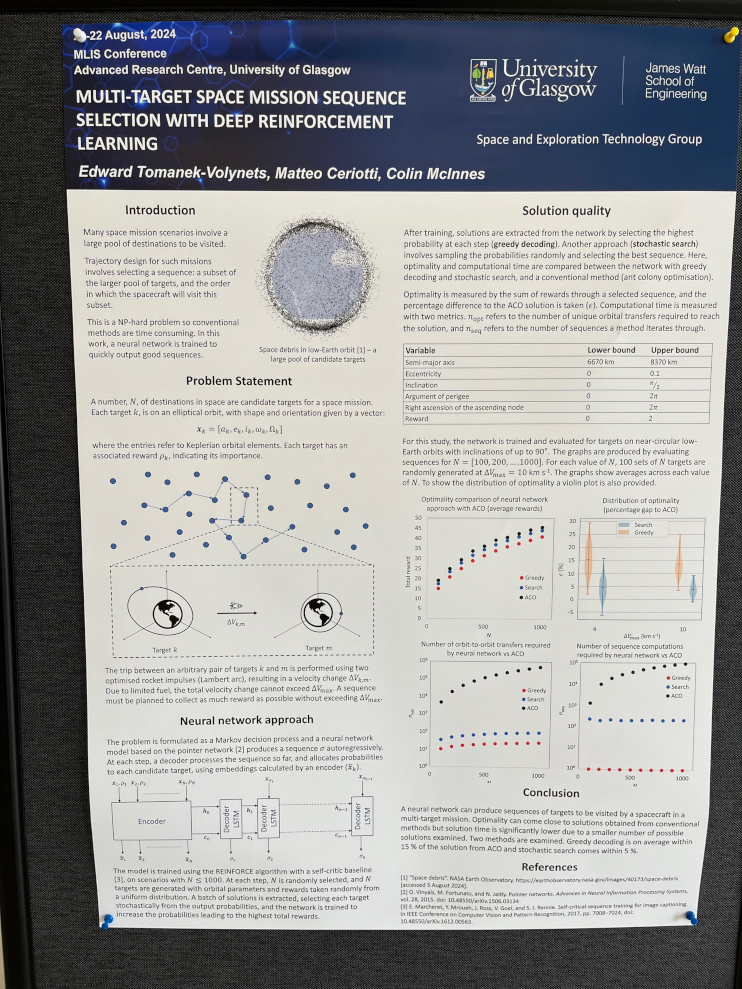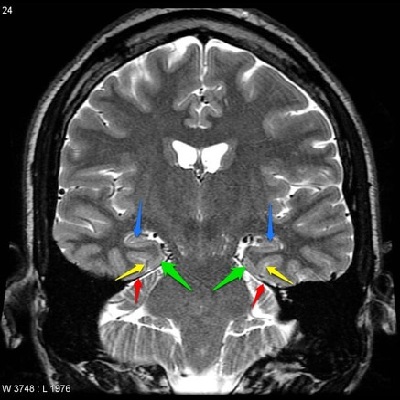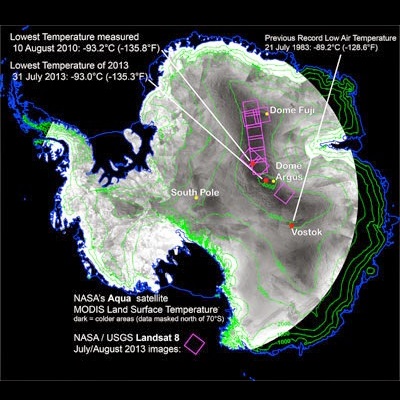Machine Learning in Science would like to invite you to take part in our 2024 conference. We hope to bring researchers together to share knowledge on machine learning, foster interdisciplinary collaboration and enhance research.
Poster Prize

Best Poster - Public Vote
Austin Dibble | A Novel Foundation Model for Estimation Brain MRI Health

Best Poster - Speaker Vote
Edward Tomanek-Volynets | Multi-target Space Mission Sequence Selection with Deep Reinforcement Learning
Gallery
Themes
AI security
As artificial intelligence (AI) evolves, ensuring its security is crucial. Our fourth theme will explore various aspects of AI security, such as identifying and mitigating threats, safeguarding sensitive data, and enhancing the resilience of AI systems. Advances in drone identification use AI to enhance airspace security, while anomaly detection algorithms identify unusual patterns indicating security breaches. Techniques like machine learning (ML) unlearning ensure data privacy by selectively removing data from AI models. We will also examine adversarial attacks and the defenses against them, investigating both the vulnerabilities exploited by such attacks and the innovative measures developed to counter them. We invite submissions on these and other relevant topics to enhance the trustworthiness of AI systems.


ML in Healthcare
Over the past years, AI has emerged as a transformative force in automating tasks such as time-series monitoring and image screening. By gathering patient data and logging healthcare-professional activities, AI further promises to alleviate the burden on overworked NHS staff, ensuring precision and efficiency and allowing our healthcare services to re-allocate resources to where they are needed most. Additionally, AI-driven diagnostics can enhance early detection and treatment of diseases, improving patient outcomes. The integration of AI in psychology promises personalized mental health interventions, revolutionizing patient care by offering tailored therapeutic approaches based on individual patient data. This theme explores the forefront of medical innovation with machine learning.


ML for Climate Sustainability
Climate sustainability is a pressing issue today, with global warming posing challenges such as droughts, desertification, and flooding. As the climate shifts, relying solely on historical data becomes less reliable for predicting weather, necessitating more accurate weather models. Industries like agriculture and logging rely on these models for informed decision-making. Moreover, AI’s power requirements in current data centers contribute to climate change, demanding energy-efficient solutions such as neuromorphic computing. In this theme, we delve into how AI can model ecosystems, climate, and weather, and explore novel hardware to reduce AI’s power consumption, thereby paving the way for a sustainable future and addressing the intertwined challenges of technological advancement and environmental stewardship.


The AI Augmented Researcher
The fusion of machine learning (ML) and artificial intelligence (AI) with research methodologies has revolutionized scientific inquiry. These technologies empower researchers to analyze intricate datasets, unveil hidden patterns, and make precise predictions, spanning various disciplines. Current large language models can approximate literature reviews and suggest experiment improvements, while multi-modal models can identify errors in mathematical derivations, further enhancing research accuracy and efficiency. By leveraging these capabilities, researchers can accelerate discovery, tackle previously insurmountable challenges, and unveil novel insights, driving innovation and progress in their fields. We invite submissions on the topic of AI and ML as tools to enable and augment new research methods.


Schedule
| Day 1 (Aug 21st) | ||
|---|---|---|
| 09:30 | Opening Remarks | |
| AI Security | ||
| 09:45 | Keynote: Prof. James Hetherington | Trust and Transformation: the role of research engineers in charting a safe course to a data-empowered society |
| 10:45 | Tea/coffee break | |
| 11:00 | Yuyang Xue | Erase to Enhance: Machine Unlearning |
| 11:30 | Dr. Lawrence Bull | Optimal Signal Reduction by Maximum Mean Discrepancy |
| 12:00 | Dr. Xiaochen Yang | Safeguarding machine learning: from black-box threats to certified robustness. |
| 12:30 | Lunch & posters | |
| ML in Healthcare | ||
| 13:45 | Keynote: Prof. Fani Deligianni | Artificial Intelligence in Pervasive Well-Being & Health |
| 14:45 | Tea/coffee, poster discussion | |
| 15:15 | Dr. Nour Ghadban | Advancing Speech Recognition for the Hearing Impaired: a Multimodal Radar Approach in Healthcare. |
| 15:45 | Barry Ryan | An Integrative Network Approach for Longitudinal Stratification in Parkinson’s Disease. |
| 16:15 | Dr. Michele Svanera | Deep Learning Methods for Brain Health Estimation. |
| Day 2 (Aug 22nd) | ||
|---|---|---|
| ML in Climate Sustainability | ||
| 09:30 | Keynote: Prof. Ahmed H. Elsheikh | Beyond Traditional Methods: AI Solutions for Computational Science Challenges. |
| 10:30 | Tea/coffee break | |
| 10:45 | Prof. Colin Torney | Machine learning methods for the study of animal groups on the move. |
| 11:15 | Dr. Cris Hasan | Multi-objective optimisation for sustainable transitions. |
| 11:45 | Matt Allen | Verifiable Data in Forest Health Measurement: Generation and Uses. |
| 12:15 | Lunch & posters | |
| The AI Augmented Researcher | ||
| 13:30 | Keynote: Dr. Petter Törnberg | Simulating Social Media using Large Language Models. |
| 14:30 | Tea/coffee, poster discussion | |
| 15:00 | Juan Pablo Bascur | Non-supervised academic documents grouping by topics: Methods and performance. |
| 15:30 | Benjamin Manning | Automated Social Science: Language Models as Scientist and Subjects. |
| 16:00 | Andrés M Bran | Augmenting Large Language Models with Chemistry tools. |
| 16:30 | Closing remarks | |
Organisers

Valentin Kapitany

Oliver Neill

Jack Radford

Philip Binner

Andrew McAvenue

Paul Wagenaar

Mansa Madhusudan

Vytas Gradauskas

